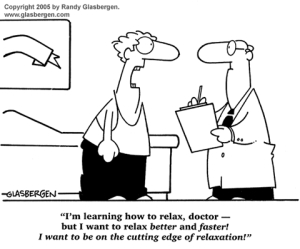Why Good Gut Health Is Important for a Good Mood
New research is emerging every day regarding the role of the gut and how it effects the brain. It is now known in the medical world as 'gut-brain axis'. The good bacteria that is in your gut are responsible to create a healthy environment so the gut can make the right neurotransmitters for the brain. This healthy bacteria is known as a microbiome that line our digestive tracts. The digestive tract itself is a center point of the nervous system, hormonal system and immune system. It is responsible for the balance of our molecules of emotion called neurotransmitters and as a result has an effect on our mood. Good gut health is known not only to help the digestion, but are key factors in obesity, hormonal balance, healthy kidney function, and much more.
How Do Probiotics Help the Brain?
Medical research is uncovering the mechanism of probiotics in mood. Probiotics is the name of supplements that contain good bacteria. These healthy germs boost mood in two important ways: they generate a particular neurotransmitter called gamma-aminobutyric acid (GABA) and also enhance the brain receptors for GABA as well. Like a warm and gentle blanket for the brain, GABA is a calming amino acid, known to calm areas of the brain that are over active in anxiety and panic.
Animal studies working with mice showed those mice who ingested probiotics were, in general, more chilled out than the control mice. The probiotic mice had lower levels of corticosterone in response to stress. Corticosterone is the mouse version of the human stress hormone cortisol. High levels of cortisol are common in anxiety as well as depression. These mice were fed either the probiotic strain Lactobacillus rhamnosus or a broth without these. The lactobacillus-fed animals showed significantly fewer stress, anxiety and depression-related behaviors than those fed with just broth.
Human studies have also corroborated these mice findings. A French team learned via a double-blinded, placebo-controlled, randomized parallel group study that giving humans specific strains of Lactobacillus and Bifidobacterium for 30 days yielded beneficial psychological effects including lowered depression, less anger and hostility, anxiety, and better problem solving, compared with the placebo group.
Yeast and the Microbiome
While a healthy microbiome will contribute to good mood, an unhealthy one full of Candida albicans (yeast), and all the toxins associated with it, may also contribute to mood disorder. Presence of yeast will alter the ability to absorb nutrients and push hypersensitivity reactions of toxin by-products which translates to inflammation in the body. Inflammation will greatly contribute to depression, anxiety and poor mental function.
What You Can Do To Keep Your Microbiome Healthy?
Steps you can take for a healthy microbiome and mood are:
1 – Avoid excess sugary foods: to avoid yeast build up. If you think you may have Candida it is best to follow a Candida diet or get foods muscle tested using Nutrition Response Testing to figure out what foods are feeding the Candida.
2 – Good Quality Sleep: good sleep is key for the intestinal lining to repair and create a healthy microbiome.
3 – Meditation and Relaxation: Meditation and quality down time is important to keep the body in the ‘rest and digest’ mode instead of stress mode. Stress mode shuts circulation to the gut, which doesn’t allow a healthy microbiome. A good app to help you learn to meditate and relax is headspace.
4 – Eat Foods with Fiber: Good fiber helps feed the good bacteria and keeps them healthy. Vegetables, fruits, psyllium, flax, inulin and other fibers also help keep good flora and proper balance of short chain fatty acids in the intestines.
5 – Eat Probiotic Foods: While the French study mentioned above used a supplement, there are also many wonderful natural foods full of probiotics. These include natto (a traditional Japanese fermented food), kim chi (Korean style cabbage), sauerkraut, yogurt, kefir, tempeh, fermented milk (like buttermilk), miso, and non-baked cheeses (like aged cheese). Homemade sauerkraut is better than store bought, for the store bought stuff is pasteurized, which kills some of the good probiotics. To read more on how fermented food heals the gut, read here.
6 – Get tested for a probiotic supplement: A good quality probiotic should contain at least Lactobacillus and Bifidus bacteria. There are a number of good ones on the market and some that are poorly made, so it is best to get muscle tested to figure out which one you specifically need. I have about 6 different ones in the office to cover a variety of different types of situations. Also make sure your probiotic doesn't have any binders, fillers, milk products, or corn. Sometimes people feel worse after taking a probiotic because the body needs to detox or kill bad gut flora first and so adding healthy gut flora to the body is overwhelming. If that has happened to you it is best to first do cleansing program with a healthcare practitioner. We also test to see if a prebiotic is needed along with a probiotic. A prebiotic helps the good bacteria grow so the gut can maintain the good bacteria on it's own which is what you want in the long run.
To learn more on what to do to have better gut health read here.








